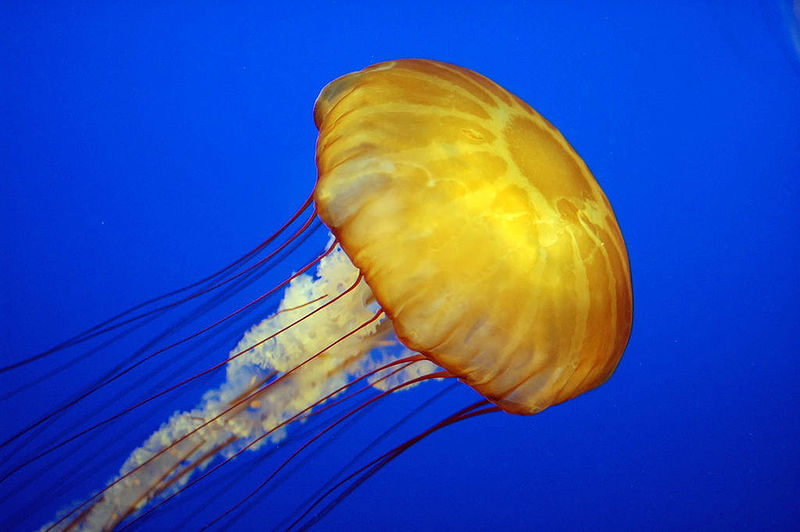
Category: Invertebrates

Jellyfish are typically free-swimming animals consisting of a gelatinous, inverted-umbrella body form (the bell) with trailing tentacles. Having roamed the sea for the last 500 (and maybe 700!) million years, they are the oldest known multi-cellular animal. Since jellyfish are not true fish, many experts prefer to use the name “jellies” to avoid cultivating misconceptions. The body of a jellyfish is between 95% and 98% water and most do not have specialized digestive, osmoregulatory, central nervous, respiratory, or circulatory systems. They can range in size from about 1 millimeter to a bell height and diameter of over 2 meters (6.6 feet). The lion’s mane jellyfish (Cyanea capillata) has fine, threadlike tentacles that may extend over 36.5 meters (120 feet!).
https://en.wikipedia.org/wiki/Jellyfish

Cephalopods: Masterminds of the Ocean.
Octopi, cuttlefish, and squids - all cephalopods - have been observed engaging in amazing feats of intelligence (perhaps unsurprising, as cuttlefish and octopuses have the highest brain-to-body mass of all invertebrates). Their suction-cup covered arms are dexterous, and octopuses have been observed putting them to use throwing rocks, opening screw-top jars, even picking up and gathering coconut shells to build fortresses for themselves. Squids, for their part, have been observed hunting cooperatively and are able to communicate with one another via color changes, patterns, and flashing to one another - sometimes using different sides of their bodies to broadcast different signals to multiple squids! Just how smart are they? As they are typically elusive and so very different from humans, we aren’t sure yet - but we do know the question is not “Are they intelligent?” but “How intelligent are they?”
Learn more >>
 Discover Animals is a web-based educational resource offered by the NAIA
Discover Animals is a web-based educational resource offered by the NAIA